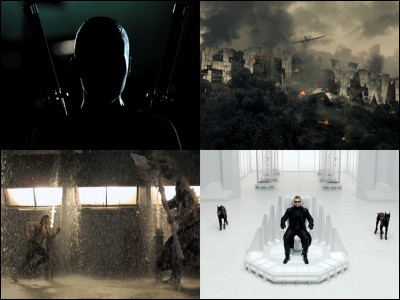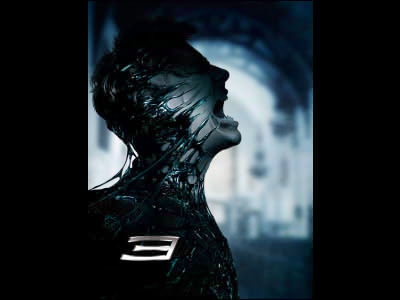Interview with "Resident Evil: The Final Chapter" Director Paul W. S. Anderson

From 2002, the Resident Evil film series has been made based on the CAPCOM video games of the same title. Milla Jovovich plays the lead as Alice, an original character created for the film series. Since the first film Resident Evil was shown in 2002, Resident Evil: Apocalypse (2004), Resident Evil: Extinction (2007), Resident Evil: Afterlife (2010), Resident Evil: Retribution (2012) were released in sequence. The final episode in six film series Resident Evil: The Final Chapter is finally released in Japan on December 23, 2016.
We had an opportunity to interview with Paul W. S. Anderson who directed the movie and has been supporting the movie series. He told us many things about the film series and the relationship between the film series and the game series.
GIGAZINE (G):
We understand that you talked in the interview that you wanted to end on a high note, but not many franchises have made up to six films, like Star Wars is about the only one you can think of. Did you envision this becoming so big at the beginning?
Director Paul W. S. Anderson (Anderson):
Only in my dreams. I mean, honestly as a film maker, you hope that what you're going to do will be successful and maybe will get a kind of follow it up somehow. But I don't think as I was shooting the original movie in Berlin fifteen years ago, I imagine that we've been sitting here fifteen years later, talking about the six movies. Although I'm delighted about it, honestly. But there were ideas I had in my mind, that if we're fortunate enough to continue the franchise, these are a kind of secrets that I want to hold until the very last film. For example, the real identity of Alice's character, what her real story is, her relationship between Umbrella Corporation. You know, these were ideas that I had fifteen years ago, that I've been waiting six movies to tell.
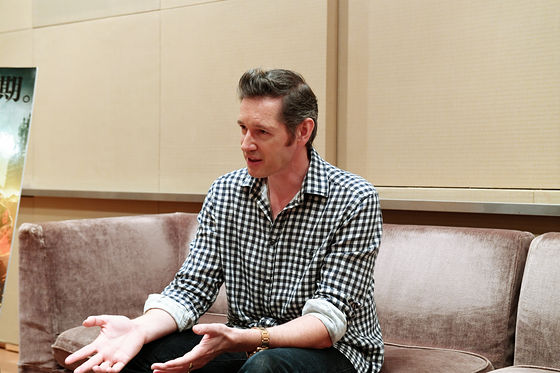
G:
In this franchise, had you obviously envisioned coming back full circle and coming back to The Hive?
Anderson:
Yes. I always imagined at the end closing the circle and bringing Alice back where the things started. You know, back to the beginning, back to Raccoon City, to The Hive, and back to where we first met her as a woman with no memories and no identity. I always imagined that she has to come back home to discover who she really is. And obviously, having brought the audience for circle in the story full circle, I was hoping that after you see this movie, you want to watch the other movies once again.
G:
We have a lot of the familiar kind of corridors and traps, and especially the laser trap. When the production was in the early stage, did you already have the idea putting these traps into the movie?
Anderson:
Yeah, I mean, I thought if we are going to get back into The Hive, it would be a combination of areas and creatures that you haven't seen before. For example, the Bloodshot that they encounter, and some of the other kind of horrific encounters in The Hive. But also, as Milla gets closer to the heart of The Hive, and she gets closer to the locations that we've used in the first movie, which meant that we had to rebuild some of the sets from the first film. We rebuild them from the original plans and they looked exactly the same. And I bring her back to the laser corridor which had been such a highlight of the first film. But Milla had only been a passive observer in the first movie. She had watched through a glass window while other people battled the laser beams. This time it's her time to be a participant.
G:
We see that by having Alice's progress is quite different departure and away from the original game series, but then you have your familiar creatures like the Popokarimu in this film, which was in the original game series, attacking Alice.
Anderson:
You know that the movie has always been heavily influenced by the games, obviously. And while the choice of the Alice character was different to the video games, I felt it was very necessary, because you know, Biohazard is a very scary game franchise. And I think, to be scary, you need to be unpredictable. I always felt that I didn't want to do a straight adaptation of any one of the video games, because then the game audience would know exactly what's going to happen. I didn't want to do a straight adaptation of Biohazard 1 because then you would know who lives, who dies, Wesker is the bad guy, big surprise. But it's not really a big surprise if you played the game and you already know that. Big shock when you walk down the corridor and the dog jumps through a window, but not really because you've played the game.
G:
I see.
Anderson:
So, I always felt that, for example, I love Alien. And I always felt if you go see Alien you've never seen it before, but before you walk into the theater, somebody says "Oh, by the way, everybody dies besides Sigourney Weaver. She's the only survivor. And 42 minutes into the movie, John Hurt is going to collapse over the kitchen table and a monster is coming out from his stomach." It would ruin the film for you, not the film has an incredible power; the power to shock. So that's why I made the decision with Biohazard 1 to tell a story that existed within the Biohazard universe but not a story that the game fans had seen. You know, I was telling the prequel to the very first game. What happened in that mansion and in that lab, to cause the original outbreak.
G:
I understand.
Anderson:
And I think that choices two things. One, it led the movie to be very surprising. You didn't know who was going to live and who was going to die. And two, I think because Alice was not in the video game, audiences who didn't know the video game didn't feel excluded. I think that to make a successful movie, you need to reach the video game fans but you also need to reach an audience that don't play the video game. And I think a lot of times general audiences feel excluded from video game movies because they feel like this is the world that they don't know anything about, therefore this is not for them. But the Alice character, she didn't know anything about Resident Evil or Biohazard game either. In fact, she didn't know anything because she had no memories. So in many ways she became the avatar for the audience. She was the way in for the audience. And for the video game audience, we told something new about the universe. For the people who didn't know anything about the video game, they can follow Milla, and they can follow her confusion in this new world. She really became a heart of the franchise.
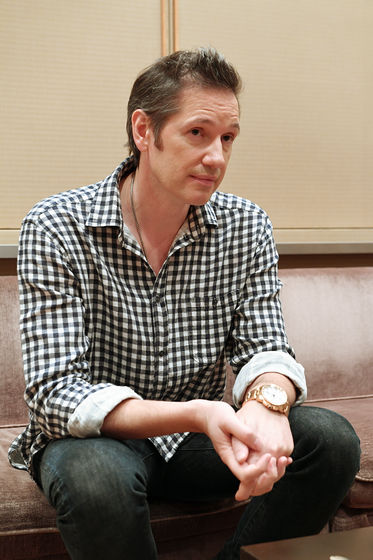
But, I would say that, if you know the video games, you can tell that these movies are made by people who know and love the video game franchise. From the creatures that appear, from the set design, even from the way the movies are shot reflect the way the video game is shot and edited. So, although we tell a parallel story to the story told in the video games, it's very much constructed in the same DNA.
G:
And incidentally Biohazard 7 Resident Evil game is almost going to be released as we are understanding. Was there any influence going back and forward between the film and the game?
Anderson:
I would say that the main thing that's happening both in the Biohazard video game series and in the movie series is that we have chosen to go back to the survival horror roots where the franchise began. You know, the first few Biohazard games were very much survival horror, and then they increasingly became about action as well. I think the same things happened in the movie franchise. You know, we started very tight and close, or taken place underground within 24 hours, and then the movies became bigger and grander and more action. And with this movie, just like the video game, I mean I wanted to go back to the survival horror roots. So while this movie still has a lot of big action that people come to associate with the franchise, it also goes back to the scariness of the first movie. The last half of the film set within The Hive, and I think that allows us to become focus and concentrated. And you know, without that, I think this is the scariest movie I've made. I love watching the movie with an audience seen it became "Ahhh!"
If you see the opening of the new movie, I mean it's Milla by herself, which is very survival, that's going right back to the very first Biohazard ways. You one person, with no weapons, just start with a knife. That reminded me of playing the first video game, you have a gun but no bullets, then you find a knife and you're just happy to have a knife. So the weaponry becomes very important.
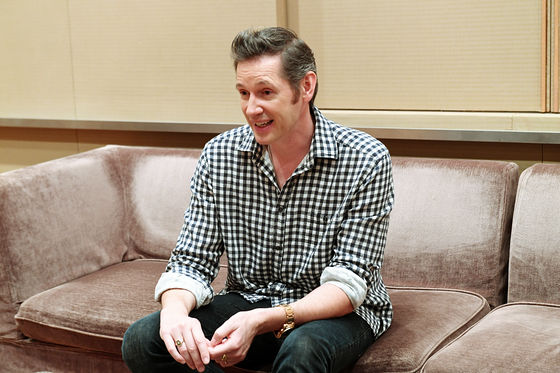
G:
I was quite surprised to see who you casted as Red Queen. She was still in her mommy's tummy during the third installment. So the question is, when did you get the idea to cast her in this world?
Anderson:
Obviously Ever has an advantage over any other young actress. But you know, I knew the role was very demanding, it's hard to find good child actors. Specially for something is demanding like this, where The Red Queen might look like a little girl but she has to talk like an adult. She has to form very complicated sentences and understand what she's saying as well. And that combined also with playing Alicia Marcus who's a little girl and was robbed her father and has to cry on camera. It was a very demanding role. And I had seen Ever, just as a father, I took her to an acting classes because she's always wanted to act when she was tiny. Milla and I, there was no way we would not let her act. So we said "You have to read, you have to be a good reader if you are going to read screenplays." So she came back a year late, pretty much becoming an excellent reader. She reads several grade points above where she should be in school. Then we said "You have to get an acting class." She spend an year going to acting class. And I saw some of the acting she was doing in her classes, and she really had inherited a lot from her mother's talent. So, the fact that her physical looks combined with what I knew was the talent she had made her possibility for the role. But then I was genuinely impressed with how well she did. I think she's terrific in the movie, and she really impressed me, like in the funeral scene while she has to cry on camera. You know, that's pretty sophisticated stuff for seven-year-old to be doing.
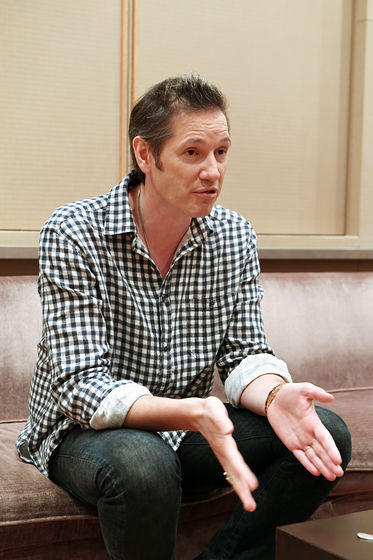
Red Queen has appeared secretly in the main graphic. Since she is related to the very foundation of this movie, you should pay attention to her.
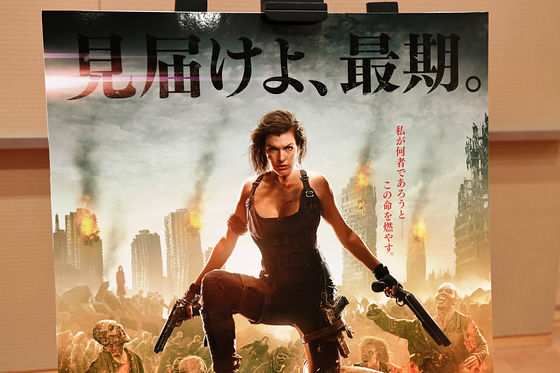
G:
So, we understand that for Biohazard game series, you are a kind of hold up in your own apartment playing games for weeks on. And we also understand that you're working on Monster Hunter film, is it correct?
Anderson:
Yes. I mean, Monster Hunter is something that I've been playing for a long time. I had ritually met CAPCOM for the first time when we were shooting Resident Evil 4, which was in 2009, and talked about Monster Hunter. So that's been a long process. And again, like Resident Evil, I'm coming at it from being a real fan of the games, and discussing with CAPCOM to turn the game into a movie as well. And you know, that's what I look for in terms of video games I would like to adapt it, just myself being passionate about the world of those games they've created.
G:
You're very busy, obviously as a director, but do you still have time to play games? And is there anything that stands out in mind gamewise? Anything you've played recently and you've really enjoyed?
Anderson:
You know what... with two kids and a movie franchise to finish, my game-playing time is very limited. So I can't say that I'm on the cutting edge of like "Whoo the latest things to come out", that tends to happen when I get some downtime. But I finished the movie a week and a half ago, finished it and got on the plane and flew to Brazil to start promoting it. So, my video game time is very limited right now haha. I'm lucky if I can fit in a game of Plants vs. Zombies in the airport. It's funny, I think I spend more time watching my daughter playing Minecraft. She's playing games, myself not nowadays. The other game is... while I was driving a car, Ever said "Behind you! Behind you!" and I asked "What?", and she was playing Pokémon GO, there were some creatures in the back seat with her.
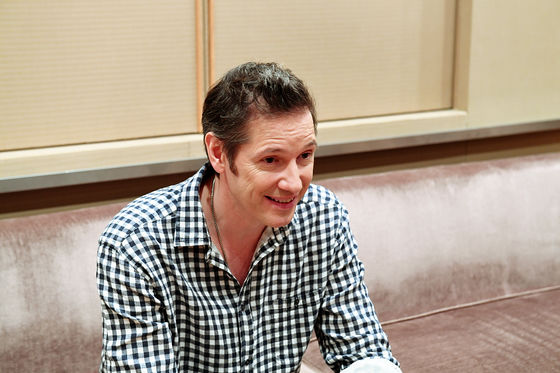
G:
I see. Thank you very much for your time during your busy schedule.
Anderson:
Very nice speaking with you.
Resident Evil: The Final Chapter is released in Japan from December 23, 2016, faster than any other countries. In the official trailer, you can see the scene of the laser trap which came out in the interview.
RESIDENT EVIL: THE FINAL CHAPTER - Official Trailer (HD) - YouTube
The Japanese Trailer is as follows:
映画『バイオハザード:ザ・ファイナル』新予告編 - YouTube
Related Posts:



